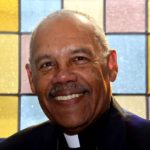
 As part of the ELCA’s AMMPARO initiative, The Rev. Abraham Allende, bishop of the Northeastern Ohio Synod, and Alaide Vilchis Ibarra, ELCA assistant director for migration policy, will travel to the Mexico/Guatemala border to participate in the International Human Rights Observation Mission. The event is hosted by a network of organizations that together form the Transnational Roundtable on Gender and Migration (Mesa Transfronteriza Migraciones y Género).
As part of the ELCA’s AMMPARO initiative, The Rev. Abraham Allende, bishop of the Northeastern Ohio Synod, and Alaide Vilchis Ibarra, ELCA assistant director for migration policy, will travel to the Mexico/Guatemala border to participate in the International Human Rights Observation Mission. The event is hosted by a network of organizations that together form the Transnational Roundtable on Gender and Migration (Mesa Transfronteriza Migraciones y Género).
This observation mission brings together stakeholders of varied expertise to meet with civil society, community leaders and with individuals from the Mexico/Guatemala border to better understand the issues facing migrants, refugees and border communities. Bishop Allende and Alaide will be joined by other leaders from the U.S., Latin America, Canada and Europe. What they learn during this trip will inform advocacy priorities for the ELCA’s AMMPARO strategy.
Please check back on this blog throughout the event for updates on their time in Mexico and Guatemala!
(Vea abajo este mensaje en español.)
PRESS RELEASE
Transnational Roundtable on Gender and Migration
Guatemala and Mexico, October 26, 2016
The Transnational Roundtable on Gender and Migration (Mesa Transfronteriza Migraciones y Género), a network of organizations in Guatemala and Mexico, dedicated to the defense and promotion of the rights of border communities, announces the beginning of the International Human Rights Observation Mission in the Guatemala – Mexico Border (MODH, its acronym in Spanish) that will take place from the 10 to the 16 of this month of November.
The MODH was born from multiple spaces between organizations on both sides of the border, where we have been talking and slowly weaving this social and civic alliance between the peoples of Guatemala and southern Mexico to make our walk visible, the causes that unite us in the defense of human rights and the struggles we share in defense of territories, gender issues and migrations.
As organizations, movements and peoples of the cross-border region, we have been spinning and strengthening our fraternal ties, where we have reflected on the situation and the contexts in which we live and fight, and now with the International Observation Mission we want to share the causes that we defend and the utopias that we construct from our regions and our fields of action.
The MODH will start in Guatemala City next November 10, and from there will be two observation routes of about a thousand kilometers of each, through which we will share our stories, passing through the jungles, Mountains and coasts of the border departments of Guatemala, and the migratory corridors of southern Mexico in Chiapas and Tabasco.
We share the list of people confirmed as Observers of the Mission, who have taken part in this local-regional-global project and come from countries such as Brazil, Canada, Colombia, Ecuador, El Salvador, Spain, the United States, Guatemala, Honduras and Mexico, all of whom are persons with extensive experience in migration and human rights.
The people that integrate each of the routes will gather with border communities from November 10th to the 15th, the day on which both routes arrive in San Cristobal de las Casas, Chiapas. In this city all will all observers will gather and the analysis from all experts will be brought together in public actions being carried out in San Cristobal on November 16 to close the MODH.
We encourage all individuals, communities and organizations in Guatemala and Mexico to join in this direct action, to follow-up and disseminate its contents and results, as a way of defending human rights and calling for a paradigm shift for this region of Latin America.
More information: Follow events on Facebook and Twitter
www.modh.mesatransfronteriza.org
Contact: mision.odh@gmail.com
COMUNICADO
Mesa Transfronteriza Migraciones y Género
Misión Internacional de Observación de Derechos Humanos en la Frontera Guatemala – México
Guatemala y México, 26 de octubre de 2016
La Mesa Transfronteriza Migraciones y Género, red de organizaciones de Guatemala y México, dedicada a la defensa y promoción de los derechos de las poblaciones fronterizas, anuncia el inicio de la Misión Internacional de Observación de Derechos Humanos en la Frontera Guatemala – México, (MODH) que tendrá lugar del 10 al 16 de este mes de noviembre.
La MODH nace de múltiples espacios de encuentro entre organizaciones de ambos lados de la frontera, donde hemos ido dialogando y tejiendo poco a poco esta alianza social y ciudadana entre pueblos de Guatemala y el sur de México para visibilizar nuestro caminar, las causas que nos unen en la defensa de los derechos humanos y las luchas que compartimos en defensa de los territorios, los géneros y las migraciones.
Como organizaciones, movimientos y pueblos de la región transfronteriza, hemos ido hilando y reforzando nuestros vínculos fraternos, donde hemos reflexionado sobre la situación y los contextos en los que vivimos y luchamos, y ahora con la Misión Internacional de Observación queremos compartir las causas que defendemos y las utopías que construimos desde nuestras regiones y nuestros campos de acción.
La MODH tendrá su punto de partida en la Ciudad de Guatemala el próximo 10 de noviembre, y desde ahí se abren dos rutas de observación de alrededor de mil kilómetros de trayecto en cada una, por las que recorreremos nuestros diálogos, pasando por las selvas, montañas y costas de los departamentos fronterizos de Guatemala, y los corredores migratorios del sur de México en Chiapas y Tabasco.
Les compartimos la lista de las personas confirmadas como Observadoras de la Misión, quienes han asumido participar de este proyecto local-regional-global y que provienen de países como Brasil, Canadá, Colombia, Ecuador, El Salvador, España, Estados Unidos, Guatemala, Honduras y México, siendo todos y todas ellas personas con amplia experiencia en migraciones y derechos humanos.
Las personas que integran cada una de las rutas convivirán con las comunidades fronterizas desde el 10 hasta el 15 de noviembre, día en el que ambas rutas llegan a San Cristóbal de las Casas, Chiapas. En esta ciudad se convocará el encuentro de todas las personas observadoras y el análisis conjunto de todo lo observado, realizándose acciones públicas en San Cristóbal el 16 de noviembre para el cierre de la MODH.
Animamos a todas las personas, comunidades y organizaciones de Guatemala y México a sumarse a esta acción directa, a darle seguimiento y a difundir sus contenidos y resultados, como una forma de defensa de los derechos humanos y reivindicación de un cambio de paradigma para esta región de Latinoamérica.
Más información: www.modh.mesatransfronteriza.org
Facebook Twitter
mision.odh@gmail.com


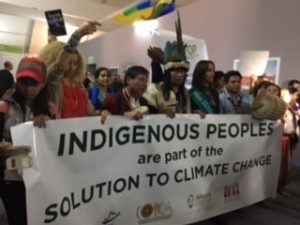
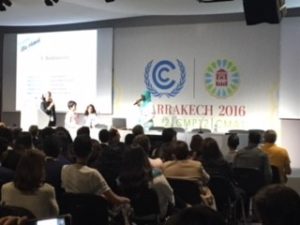
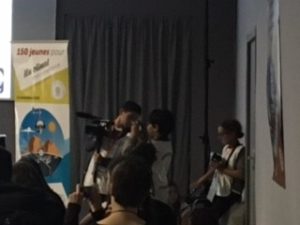
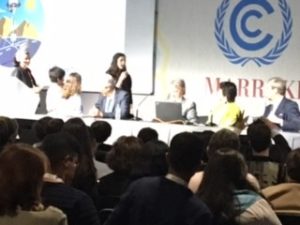

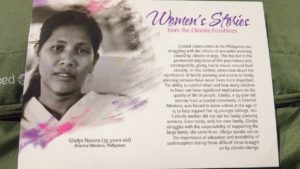
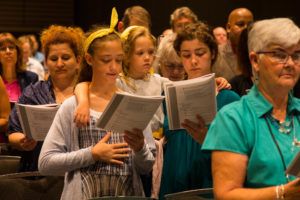 worshiping beside me. The most poignant moment for me that left a lasting memory in my mind and on my heart was when the congregation inhaled together to begin singing each new hymn stanza or liturgical response! As one gasping body, we breathed in the breath of the Spirit among us and filled our lungs with the energy and power to lift our voices in praise to God. We became one organism, replenished in spirit and capacity by the One who calls, gathers, enlightens and sustains us each day. It was pure joy to fervently sing the texts that followed with the renewed awareness of this deep common bond.
worshiping beside me. The most poignant moment for me that left a lasting memory in my mind and on my heart was when the congregation inhaled together to begin singing each new hymn stanza or liturgical response! As one gasping body, we breathed in the breath of the Spirit among us and filled our lungs with the energy and power to lift our voices in praise to God. We became one organism, replenished in spirit and capacity by the One who calls, gathers, enlightens and sustains us each day. It was pure joy to fervently sing the texts that followed with the renewed awareness of this deep common bond.
